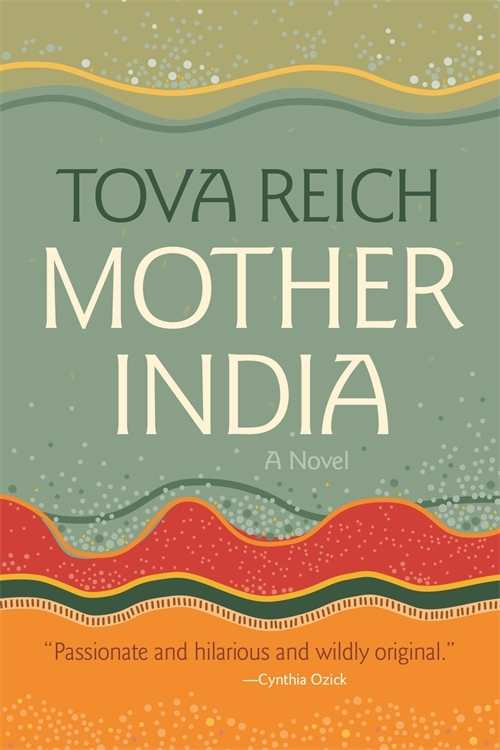Mother India
Tova Reich’s Mother India relies on Meena to tell her family’s story through its women’s stories, from her mother’s to her daughter’s to her own. Born into a famed rabbinical family in Brooklyn, she’s now a lesbian divorcée living in Mumbai, raising her daughter and running her spiritual tourism travel company alone.
But any illusions of distance are shattered as soon as her mother shows up in India with stage 4 breast cancer—not for alternative treatments, but to die. As Meena’s story reveals, there’s a complexity and cost to some liberations that can only be tallied in their reconstruction.
Told in three sections, titled “Ma,” “Maya,” and “Meena” after each of the family’s women, the narrative explores lineage, identity, and liberation through matriarchy. By and large, these matriarchies exist within the greater envelope of patriarchy, and their invisible enclaves form wheels within wheels that alternately run over, grind down, and interlock with the novel’s characters.
In this novel, mothers abound: the mother goddess, the Jewish mother, the abandoned and abandoning mother, the fierce mother, the protective mother, the grieving and the dead mother. Yet these many stereotypes form a matrix across and within characters, suggesting an archetypal vastness rather than a singular, definitive identity. After all, mothers are vast and complex, individually or categorically, as Reich shows when telling a story that pivots on these imperfect categories.
Again and again, Meena insists the story isn’t about her, but there’s no way to avoid the personal when it comes to motherhood’s omnipresence, especially for anyone cultured female. From the value placed on motherhood in orthodox Jewish and Indian traditions to Meena and her twin brother’s dynamic, Reich juxtaposes unexpected elements of faith, society, and personal identity to harrowing effect.
Reviewed by
Letitia Montgomery-Rodgers
Disclosure: This article is not an endorsement, but a review. The publisher of this book provided free copies of the book to have their book reviewed by a professional reviewer. No fee was paid by the publisher for this review. Foreword Reviews only recommends books that we love. Foreword Magazine, Inc. is disclosing this in accordance with the Federal Trade Commission’s 16 CFR, Part 255.

